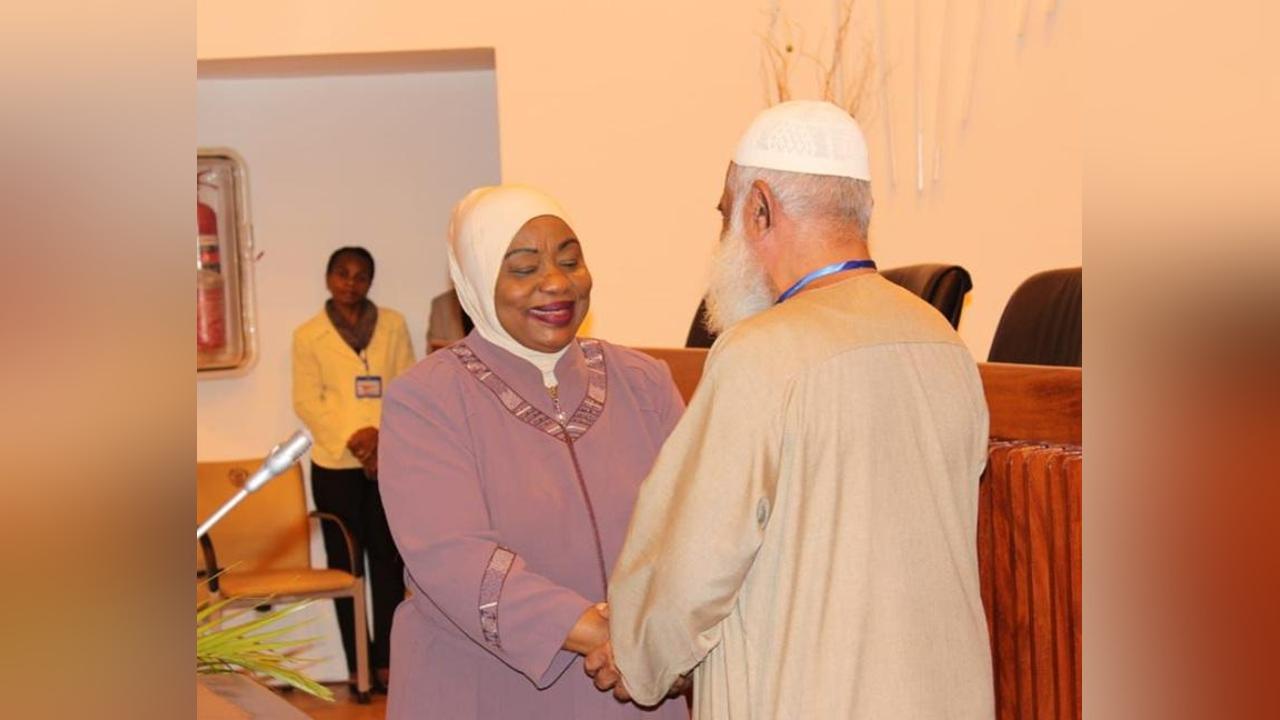Africa-Press – Mozambique. The leaders of the three Mozambican opposition parties with seats in parliament, Albino Forquilha (Podemos), Ossufo Momade (Renamo) and Lutero Simango (MDM), are among the seven citizens chosen by the Assembly of the Republic to join the Council of State.
According to information from the Assembly of the Republic, parliament on Tuesday, through a draft resolution, also “elected” citizens, politicians, academics and religious figures Alcinda Abreu Mondlane, Maria Luísa Neto Massamba, Jamisse Taimo, Aminuddin Mohamed, Albino Forquilha, Ossufo Momade and Lutero Simango as members of the Council of State for the legislature from 2025 to 2029.
“According to the Parliament’s Commission on Constitutional Affairs, Human Rights and Legality, the elected citizens are individuals of recognised merit, whose presence in the Council of State will contribute to strengthening dialogue and mechanisms for political consultation with the President of the Republic,” reads the same information, consulted by Lusa.
Among the members appointed by parliament is Albino Forquilha, president of the Optimist for the Development of Mozambique (Podemos) party, which, after the general elections of October 9, 2024, and after supporting presidential candidate Venâncio Mondlane, became the main opposition party in Mozambique.
Ossufo Momade, leader of the Mozambican National Resistance (Renamo), which was previously the most representative opposition party, will remain on the Council of State. Momade was as the second most-voted-for presidential candidate in the 2019 general election, and came third in the 2024 presidential race.
According to the Constitution of the Republic, Venâncio Mondlane, who was the second most-voted-for presidential candidate in October 2024, is expected to be appointed to the Council of State, but he does not recognize the election results, which gave victory to Daniel Chapo, who was sworn in as the fifth President of the Republic on January 15.
The Constitution defines the Council of State as a “political body for consultation with the President”, which he presides over, and which includes by extension the President of the Assembly of the Republic, the Prime Minister, the President of the Constitutional Council, the Ombudsman, the former Presidents of the Republic and the former Speakers of Parliament.
According to Article 163 of the Constitution, the Council of State must be made up of “seven individuals of recognised merit elected by the Assembly of the Republic for the period of the legislature, in accordance with parliamentary representation”, as well as “four individuals of recognised merit appointed by the President of the Republic for the period of his term” and “the second most voted candidate for the position of President”.
“The members of the Council of State shall enjoy privileges, immunities and protocol treatment to be established by law,” the Constitution decrees.
The Council of State is responsible for “advising the President (…) whenever he so requests”, but also for “making mandatory pronouncements” on the dissolution of the Assembly of the Republic, the declaration of war, a state of siege or of emergency, the holding of a referendum, the calling of general elections and the dismissal of provincial governors and district administrators.
After several months of social unrest and protests against the election results – the victory of Daniel Chapo and the Mozambique Liberation Front (Frelimo, in power since 1975) – which led to looting, destruction of public and private property, and around 400 deaths, the head of state and Venâncio Mondlane met for the first time on 23 March in Maputo and agreed to work together to pacify the country.
For More News And Analysis About Mozambique Follow Africa-Press






